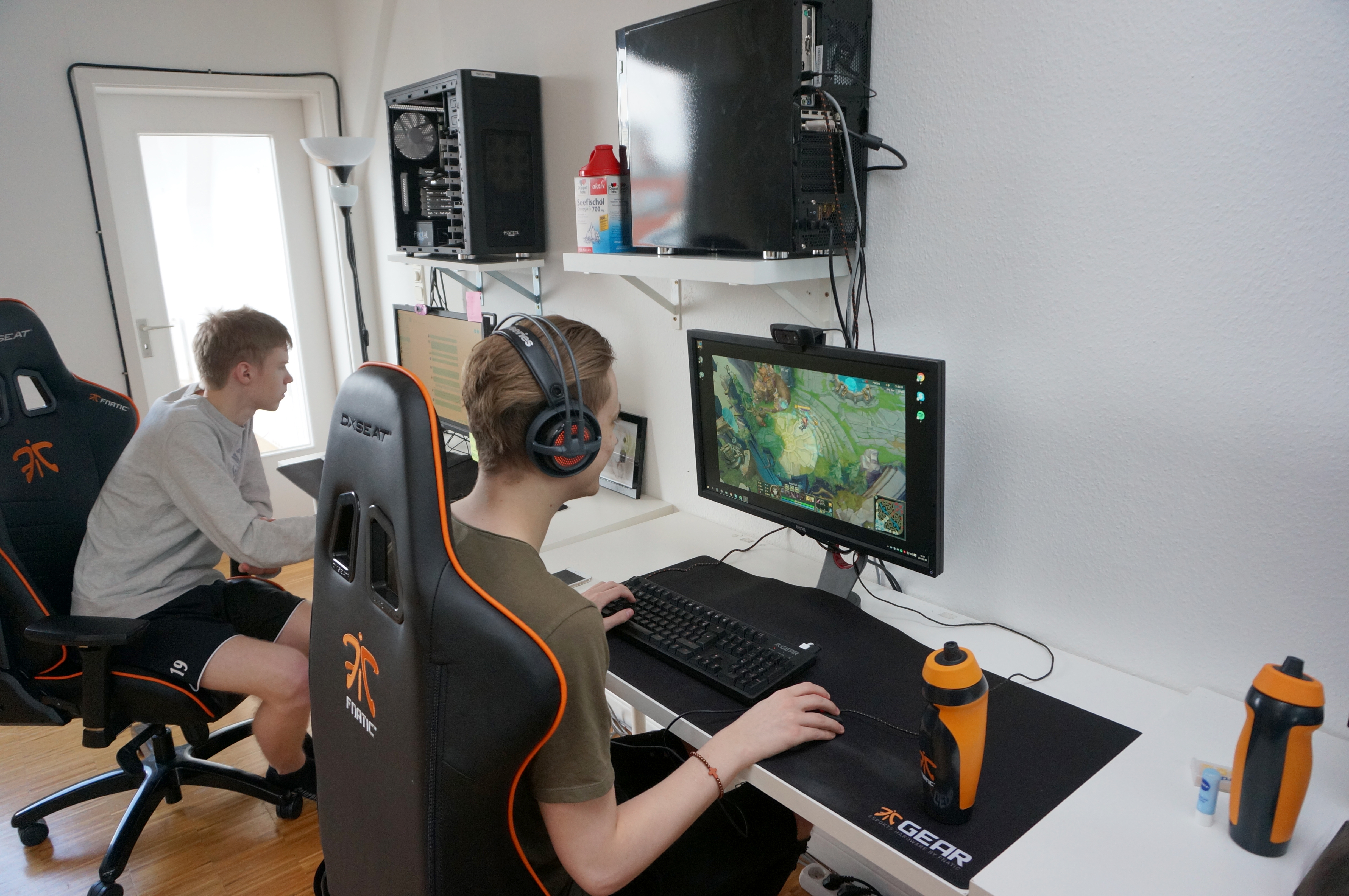
BERLIN — Video games were just a hobby for Martin Larsson until a knee injury at 14 kept him off the soccer field for two years.
These days, he's a star gamer-athlete.
"What drove me was that competitiveness from sports," said Larsson, 19, of Gothenburg, Sweden, who currently plays League of Legends for the Fnatic team based in Berlin and goes by his handle Rekkles. "I beat my friends to begin with and played more than them to be better than them. And with all the free time that I had, I just kind of became good really fast."
Larsson is a celebrity in what is now a quickly growing industry: competitive gaming, or eSports. Around the world, millions of eSport enthusiasts flock to tournaments, and revenues are rising rapidly from ticket and merchandise sales, ads and sponsorships and TV rights.
Some players even earn prize money that puts them in a league with professional players in the USA. At the DotA 2 international championships in Seattle last year, for example, players competed for $11 million in prize money.
"The stereotypical picture of gamers who are sitting alone at home, these days are over," said Timm Lutter, the head of consumer electronics and digital media at Bitkom, the association for digital industries in Germany. "If you have a look at these videos of eSports, you will see these are actual superstars. They have nothing to do with what people imagined, like 10 years ago, what the typical gamer might look like."
the head of consumer electronics and digital media at Bitkom, the association for digital industries in Germany. "If you have a look at these videos of eSports, you will see these are actual superstars. They have nothing to do with what people imagined, like 10 years ago, what the typical gamer might look like."
A decade ago, few believed the world of competitive gaming would move from living rooms to major venues that seat thousands. NewZoo, a market research firm based in Amsterdam that specializes in digital gaming, predicts revenues will soar over the next few years.
Worldwide earnings were $325 million in 2015, according to NewZoo’s 2016 Global Esports Market Report. This year, the firm expects them to hit $463 million. By 2019 they’re forecast to top $1 billion worldwide. The report projects that the number of eSports fans will jump from 226 million last year to 345 million in 2019.
Media giants are beginning to notice.
This month, Yahoo announced the launch of Yahoo Esports, a new platform to deliver professional coverage of major eSports games and events. "We're approaching our coverage of eSports with the same tenacity and professionalism we have with Yahoo Sports, News and Finance,” said Bob Condor, vice president of Yahoo Sports Media.
In January, ESPN began covering the industry more comprehensively with the launch of its new eSports programming. The company says it has a "long history" of delivering live programming and other coverage to eSports fans. Last May, ESPN The Magazine debuted its first print "eSports Issue," which profiled industry superstars and provided a backstage look at a major eSports tournament.
Still, the industry is experiencing growing pains, especially in gaining recognition as a real sport.
Because gamers are paid to play in tournaments and compete for cash prizes, eSports "athletes" are often required to obtain visas to enter international competitions.
In the United States, gamers can apply for P1 Internationally Recognized Athlete visas, as other sportsmen and women can. But in the rest of the world, it's trickier.
Earlier this year, German authorities declined to grant several Russian players work permits to compete in the League of Legends computer game matches in Berlin. They were not recognized as traditional athletes, so they didn’t qualify for the visas.
"It's not a regular incident, but it's not isolated either," said Arne Peters, a vice president of technology at ESL Germany, an eSports tournament host and organizer. ESL works with eSports teams to help them navigate German bureaucracy and obtain visas.
"We wish we could be in a much more convenient situation where we adhere to similar regulations as other sports," he said.
Besides official recognition, one other key difference between eSports and legacy sports is funding. While both traditional and eSports athletes receive money from sponsors and league operators, eSports fans raise money for their favorite teams and players.
Fans raised more than half the money for teams that participated in the last world championship for "Defense of the Ancients" (DotA) 2, a popular eSports game, Lutter said.
"That's why the eSports community is not only big and incredible, but when it comes to loyalty, fans are really bound to the sport," he said. "It's a lot of money, and we're talking about $1.7 million for the winner of the tournament."
Lutter said that fans' devotion to eSports teams and players are a reason the industry has proven so lucrative and successful.
After the tournaments conclude, fans continue to watch replays of the games on streaming services like YouTube or Twitch, in which video commentators discuss the relative merits of players' strategies and trade humorous insights. According to Lutter, some of these commentators are as popular among the Millennial generation as Hollywood movie stars like Jennifer Lawrence.
That's because for some like Larsson, who trains six days a week, 14 hours a day to stay on top of his game, the sport is addictive. He can't imagine doing anything else and is willing to go the long haul.
"I think it's still a very young industry," said Larsson. "So there's a lot more to come, in a sense. It’s kind of investment in yourself to stick around. It's basically just sleep, play, sleep. But you feel like you're doing something you love doing."


